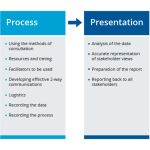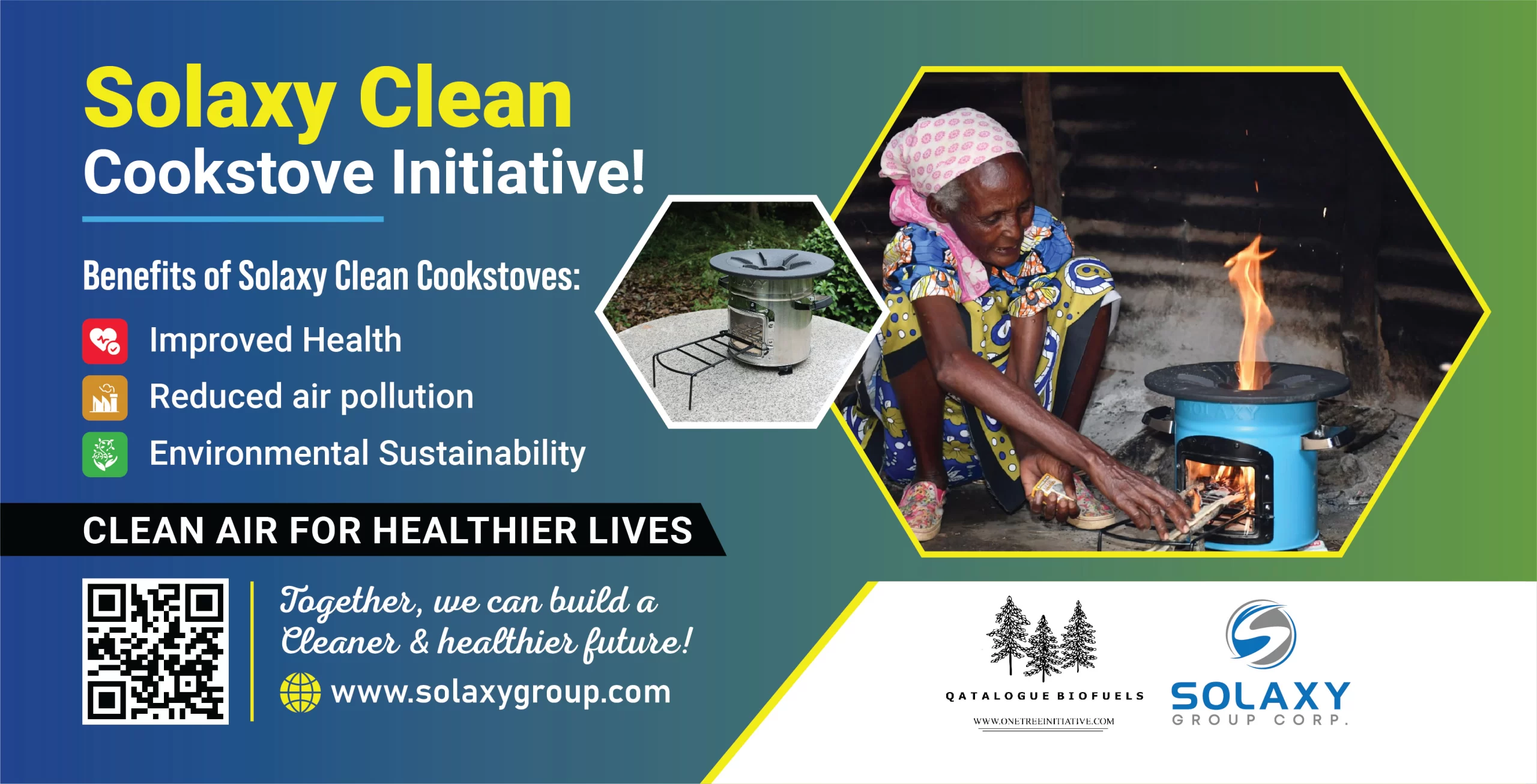In rural Kenya, access to clean and efficient cooking solutions has long been a challenge, with many households relying on traditional open fires that pose health and environmental risks. Solaxy Group, a forward-thinking organization, is addressing this issue through its Clean Cookstove Initiative. By introducing affordable, energy-efficient cookstoves, the initiative aims to reduce indoor air pollution, curb deforestation, and improve the quality of life for thousands of families. This transformative project not only promotes sustainable living but also empowers communities by creating economic opportunities and fostering environmental stewardship. Solaxy Group’s efforts are reshaping the way rural Kenya cooks, one clean stove at a time.

Solaxy Group Transforms Cooking in Rural Kenya With Clean Cookstove Initiative
Solaxy Group has launched a transformative initiative in rural Kenya, introducing clean cookstoves to improve the lives of local communities. This initiative aims to address the challenges of traditional cooking methods, such as health hazards, environmental degradation, and economic inefficiency. By providing access to clean energy solutions, Solaxy Group is empowering rural households to adopt safer and more sustainable cooking practices.
1. The Problem with Traditional Cooking Methods in Rural Kenya
Traditional cooking methods in rural Kenya often rely on open fires and inefficient stoves, which burn biomass fuels like wood and charcoal. These methods release harmful smoke and pollutants, leading to respiratory illnesses and other health issues. Additionally, the excessive use of biomass contributes to deforestation and climate change. Solaxy Group's initiative seeks to mitigate these problems by introducing clean cookstoves that reduce emissions and improve air quality.
See Also Does Anyone Know Where I Can Find Examples of Stakeholder Consultations? I'm Setting Up a Project and Would Like to See Some Example Sessions to Understand How Those Were Done
Does Anyone Know Where I Can Find Examples of Stakeholder Consultations? I'm Setting Up a Project and Would Like to See Some Example Sessions to Understand How Those Were Done| Issue | Impact |
|---|---|
| Health hazards | Respiratory diseases, eye irritation |
| Environmental degradation | Deforestation, increased carbon emissions |
| Economic inefficiency | High fuel costs, time-consuming fuel collection |
2. How Solaxy Group's Clean Cookstoves Work
Solaxy Group's clean cookstoves are designed to burn fuel more efficiently, reducing the amount of smoke and pollutants released during cooking. These stoves use advanced combustion technology to maximize heat output while minimizing fuel consumption. They are also portable and easy to use, making them ideal for rural households. By adopting these stoves, families can save time and money while protecting their health and the environment.
| Feature | Benefit |
|---|---|
| Efficient combustion | Reduces smoke and pollutants |
| Portable design | Easy to use and transport |
| Fuel efficiency | Saves money and reduces deforestation |
3. Health Benefits of Clean Cookstoves
The introduction of clean cookstoves has significantly improved the health of rural communities in Kenya. By reducing exposure to harmful smoke, these stoves help prevent respiratory diseases, eye irritation, and other health issues. Women and children, who are often responsible for cooking, benefit the most from this initiative. Solaxy Group's efforts are contributing to a healthier and more productive population.
| Health Benefit | Impact |
|---|---|
| Reduced smoke exposure | Lower risk of respiratory diseases |
| Improved air quality | Better overall health for families |
| Fewer eye problems | Reduced irritation and infections |
4. Environmental Impact of the Clean Cookstove Initiative
Solaxy Group's initiative is making a positive impact on the environment by reducing deforestation and carbon emissions. Traditional cooking methods require large amounts of wood and charcoal, leading to the destruction of forests. Clean cookstoves, on the other hand, use less fuel and produce fewer emissions, helping to preserve Kenya's natural resources and combat climate change.
See Also Can Individuals Own Carbon Credits on a Registry or Sub-Registry Account?
Can Individuals Own Carbon Credits on a Registry or Sub-Registry Account?| Environmental Benefit | Impact |
|---|---|
| Reduced deforestation | Preservation of forests and biodiversity |
| Lower carbon emissions | Contribution to climate change mitigation |
| Sustainable fuel use | Reduced strain on natural resources |
5. Economic Advantages for Rural Households
The adoption of clean cookstoves has brought significant economic benefits to rural households in Kenya. These stoves reduce the need for frequent purchases of charcoal and firewood, saving families money in the long run. Additionally, the time saved from collecting fuel can be used for other productive activities, such as farming or education. Solaxy Group's initiative is helping to improve the economic stability of rural communities.
| Economic Benefit | Impact |
|---|---|
| Lower fuel costs | Savings for households |
| Time savings | More time for income-generating activities |
| Improved productivity | Enhanced economic opportunities |
Empowering Communities: How Solaxy Group is Revolutionizing Rural Cooking in Kenya
The Problem with Traditional Cooking Methods in Rural Kenya
In rural Kenya, traditional cooking methods such as open fires and rudimentary stoves are still widely used. These methods are not only inefficient but also pose significant health risks due to the toxic smoke they produce. Women and children, who often spend hours near these cooking areas, are particularly vulnerable to respiratory diseases and other health issues. Additionally, the reliance on firewood and charcoal contributes to deforestation, further exacerbating environmental challenges. The time-consuming process of gathering firewood also limits opportunities for education and economic activities, particularly for women and girls.
Solaxy Group's Clean Cookstove Initiative: A Sustainable Solution
The Solaxy Group has introduced a clean cookstove initiative aimed at addressing these pressing issues. These energy-efficient stoves are designed to reduce fuel consumption by up to 50%, significantly lowering the amount of firewood or charcoal needed. The stoves are also engineered to minimize smoke emissions, thereby improving indoor air quality and reducing the risk of respiratory illnesses. By providing a sustainable alternative, Solaxy Group is not only improving health outcomes but also contributing to environmental conservation efforts in rural Kenya.
See Also Is the Whole Industry Scammy? Feels Very Scammy. How to Make It Less So?
Is the Whole Industry Scammy? Feels Very Scammy. How to Make It Less So?The adoption of clean cookstoves has far-reaching economic and social benefits. Families save money by reducing their fuel expenses, which can be redirected towards other essential needs such as education and healthcare. The time saved from not having to gather firewood allows women and girls to engage in income-generating activities or attend school, thereby fostering economic empowerment and gender equality. Furthermore, the reduced demand for firewood helps to preserve local forests, ensuring a more sustainable future for the community.
Community Engagement and Education: Key to Success
The success of Solaxy Group's initiative hinges on community engagement and education. The organization conducts workshops and training sessions to educate local communities about the benefits of clean cookstoves and how to use them effectively. By involving community leaders and local organizations, Solaxy Group ensures that the initiative is culturally appropriate and widely accepted. This participatory approach not only increases adoption rates but also fosters a sense of ownership among community members, ensuring the long-term sustainability of the project.
Scaling Up: The Future of Clean Cooking in Kenya
Looking ahead, Solaxy Group aims to scale up its clean cookstove initiative to reach even more rural households across Kenya. The organization is exploring partnerships with government agencies, NGOs, and private sector players to expand its reach and impact. Additionally, Solaxy Group is investing in research and development to further improve the efficiency and affordability of its cookstoves. By continuing to innovate and collaborate, Solaxy Group is paving the way for a brighter, healthier future for rural communities in Kenya.
Frequently Asked Questions (FAQ)
What is the Solaxy Group's Clean Cookstove Initiative in rural Kenya?
The Solaxy Group's Clean Cookstove Initiative is a transformative project aimed at improving cooking conditions in rural Kenya by providing clean and efficient cookstoves to households. Traditional cooking methods in these areas often rely on open fires or inefficient stoves, which contribute to indoor air pollution, deforestation, and health risks. The initiative focuses on replacing these outdated methods with sustainable and eco-friendly alternatives, reducing harmful emissions and promoting healthier living environments.
How does the Clean Cookstove Initiative benefit rural communities in Kenya?
The initiative offers numerous benefits to rural communities, including improved health outcomes by reducing exposure to toxic smoke, which is a leading cause of respiratory illnesses. Additionally, the clean cookstoves are designed to use less fuel, helping families save money and reducing the demand for firewood, which in turn helps combat deforestation. The project also empowers local women, who are often responsible for cooking, by freeing up time previously spent gathering firewood and allowing them to engage in other productive activities.
What challenges does the Solaxy Group face in implementing this initiative?
Despite its many benefits, the initiative faces several challenges, such as cultural resistance to adopting new cooking technologies and the initial cost of the clean cookstoves, which may be prohibitive for some families. Additionally, ensuring consistent access to fuel and providing adequate training on how to use the stoves effectively are ongoing hurdles. The Solaxy Group addresses these challenges through community outreach, education programs, and partnerships with local organizations to make the stoves more accessible and affordable.
How can individuals or organizations support the Clean Cookstove Initiative?
Individuals and organizations can support the initiative by donating funds to help subsidize the cost of cookstoves for low-income families or by sponsoring training programs to educate communities about the benefits of clean cooking. Partnerships with non-governmental organizations (NGOs) and government agencies are also crucial for scaling the project and reaching more households. Additionally, raising awareness about the initiative through social media and advocacy campaigns can help garner broader support and resources for this impactful project.
Leave a Reply


Our Recommended Articles